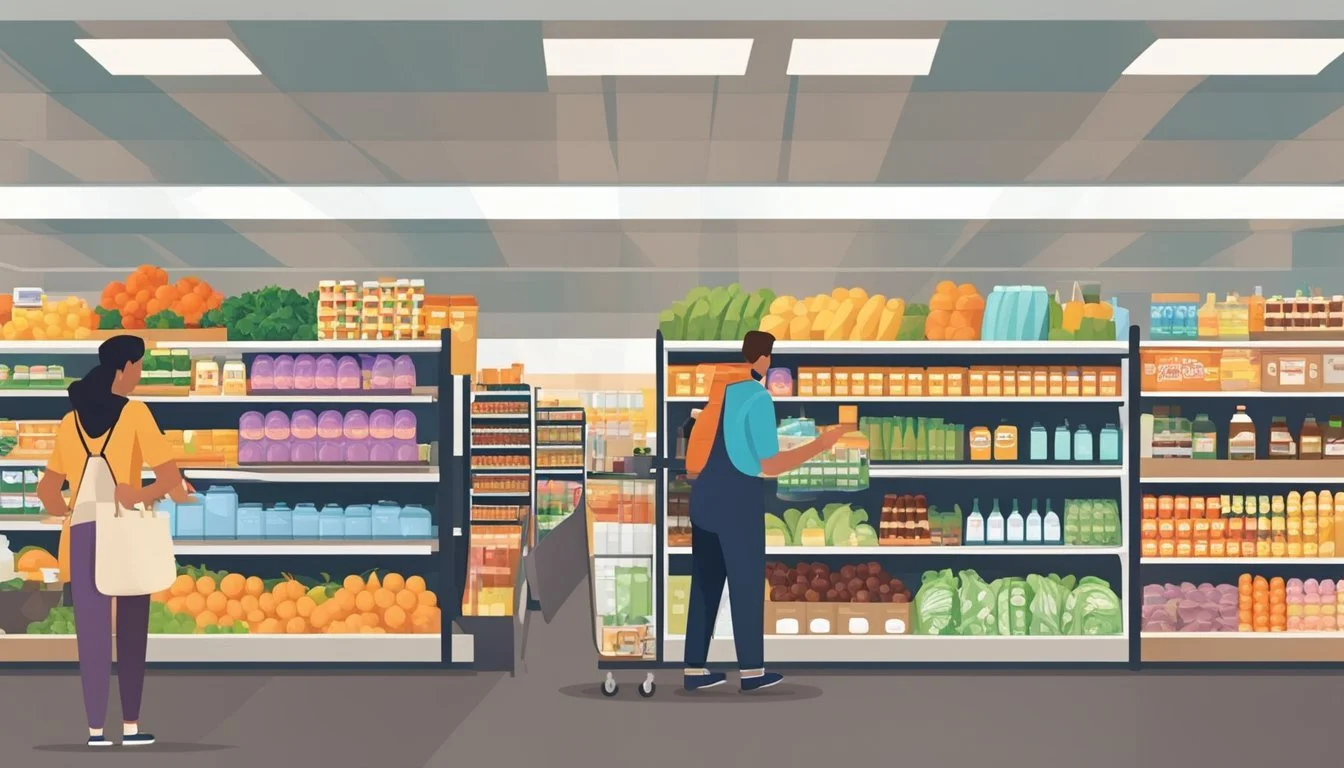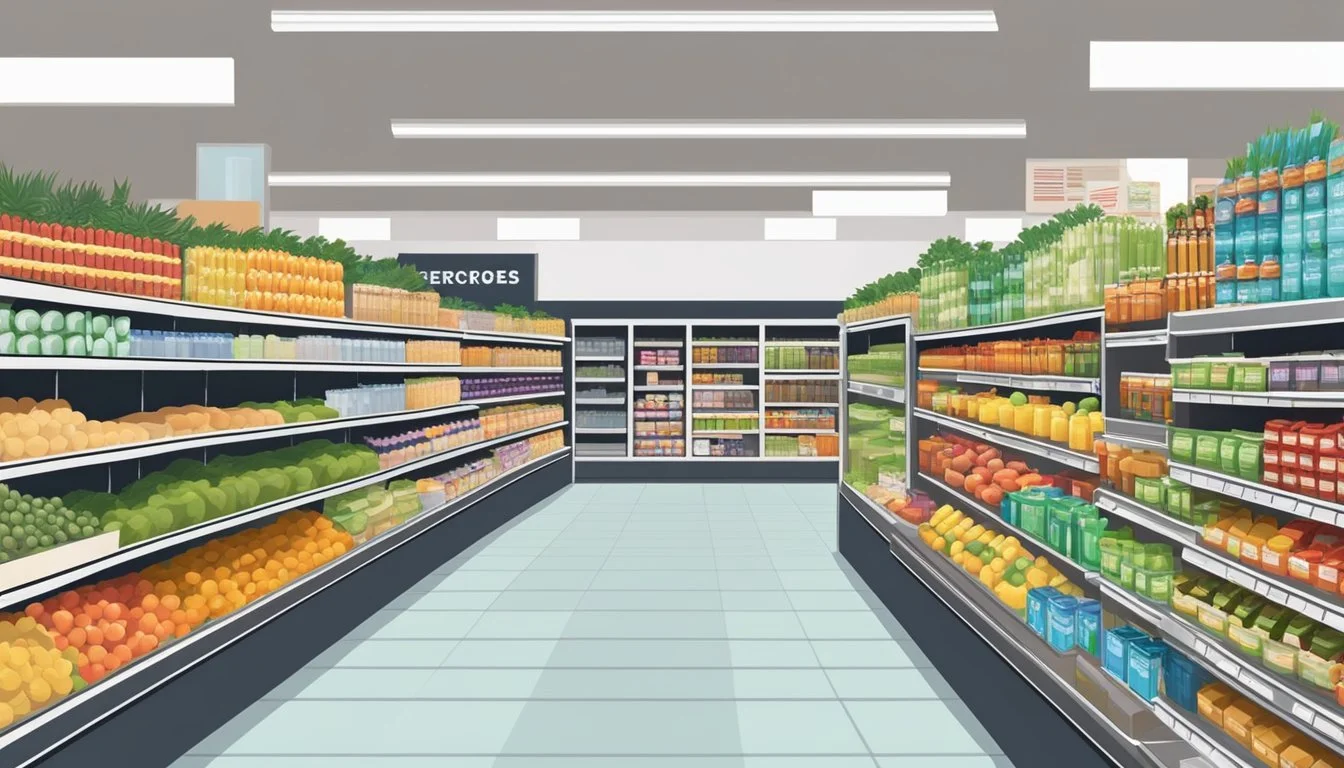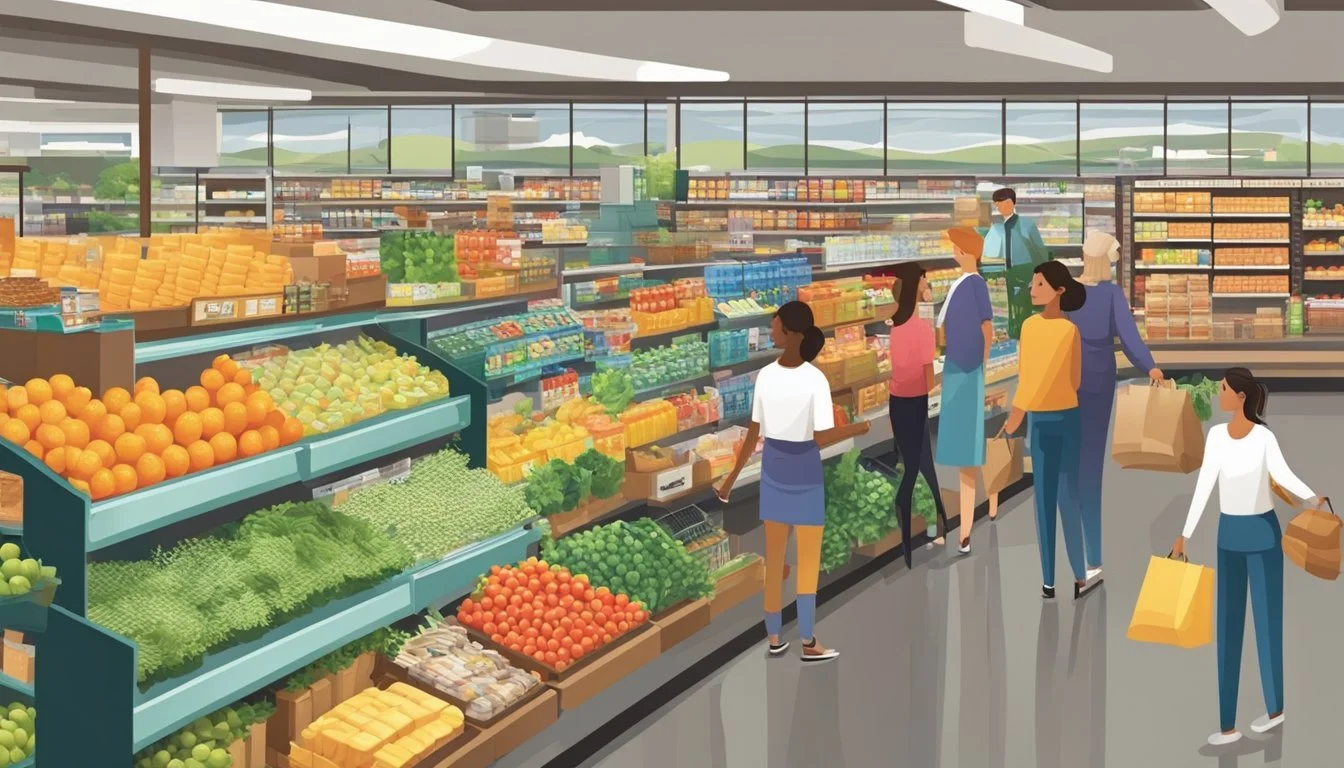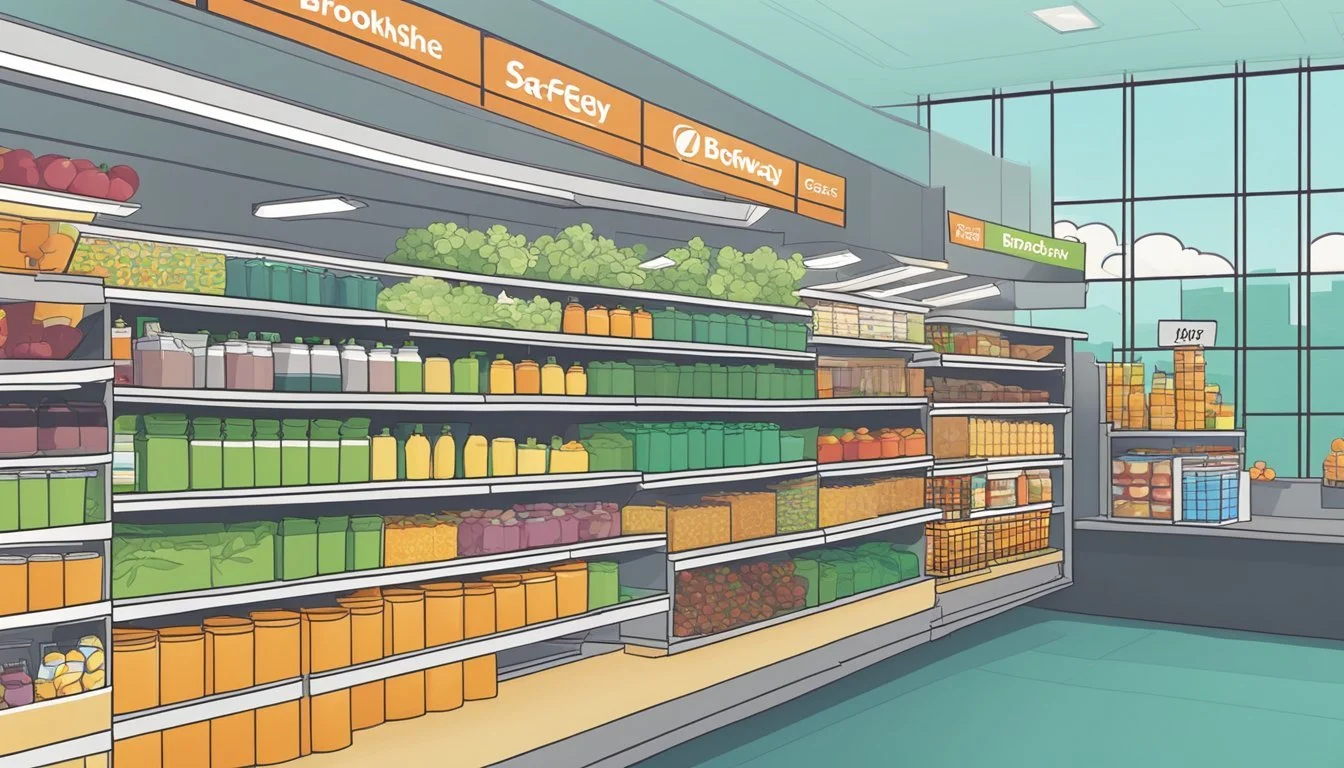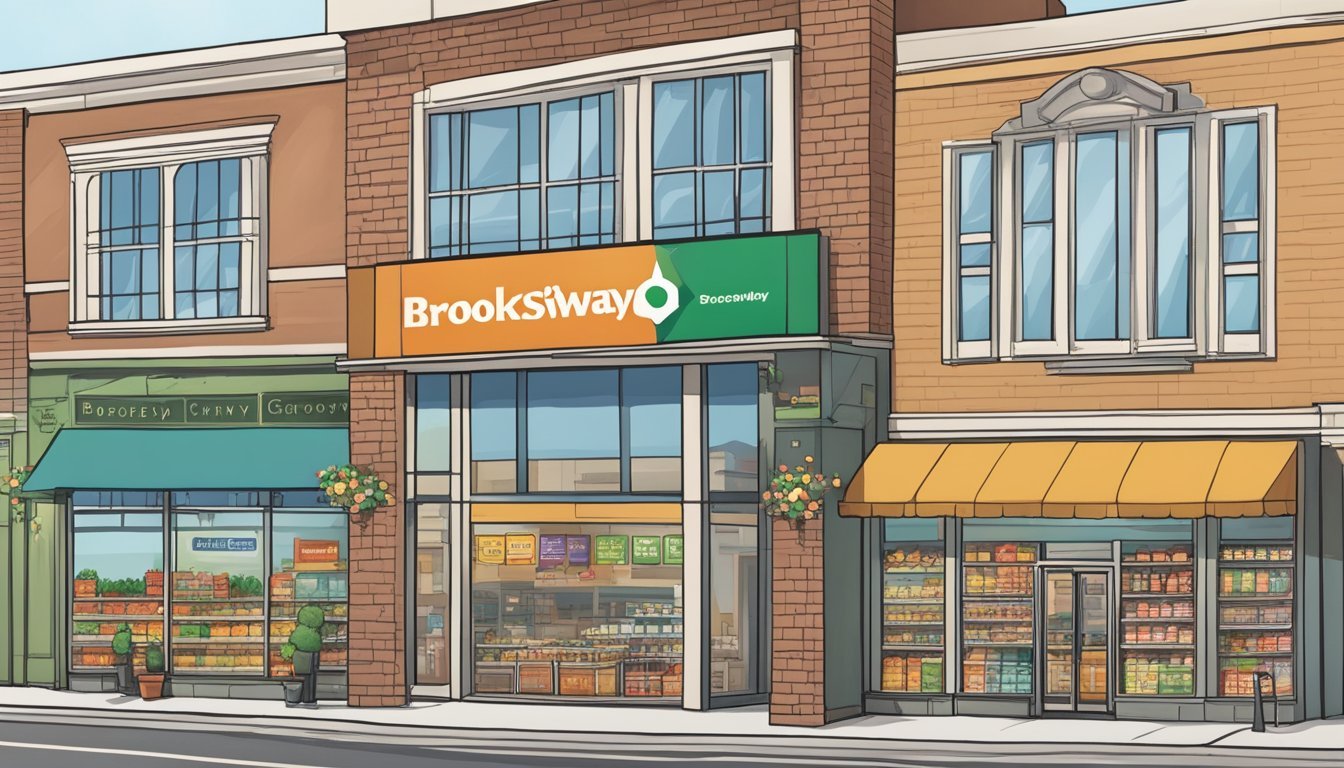Brookshire Grocery Company vs Safeway
A Comprehensive Comparison of Prices, Selection, and Customer Service
Grocery shopping habits vary widely, with consumers seeking the best combination of price, quality, and convenience. Brookshire Grocery Company and Safeway, two prominent players in the U.S. supermarket industry, offer distinct shopping experiences.
Brookshire's, a regional chain with roots in East Texas, operates over 180 stores across Texas, Louisiana, and Arkansas. The company is known for its community-focused approach and emphasis on customer service. Safeway, on the other hand, is a larger national chain with a broader reach, operating over 900 locations across the United States and boasting a wider selection of products.
Both retailers have their strengths and weaknesses. Brookshire's often excels in personalized service and local product offerings, while Safeway typically provides more competitive pricing on a larger variety of items. The choice between the two ultimately depends on individual preferences and priorities when it comes to grocery shopping.
Historical Overview
Brookshire Grocery Company and Safeway both have rich histories in the American grocery landscape. Brookshire's was founded in 1928 by Wood T. Brookshire in Tyler, Texas. The company started as a small 2,500-square-foot store on the courthouse square.
During the Great Depression, Brookshire's managed to survive and grow. It expanded across Texas and into neighboring states like Arkansas, Louisiana, and Oklahoma. The company remained family-owned throughout its development.
Safeway's roots trace back to 1915 when M.B. Skaggs purchased a small grocery store in Idaho. The company grew rapidly, merging with Saffeway Stores in 1926 to form Safeway Inc.
By the 1930s, Safeway had become a major player in the modern supermarket industry. It expanded across the United States and even internationally, though it later refocused on North American operations.
Brookshire's introduced additional brands like Super 1 Foods and Spring Market to cater to different market segments. Safeway, in contrast, focused on a unified brand identity across its stores.
Both companies adapted to changing consumer needs over the decades. They embraced technological advancements and expanded their product offerings to include pharmacy services and prepared foods.
Business Models and Strategies
Brookshire Grocery Company operates as a regional supermarket chain with a focus on customer service and community engagement. The company utilizes a traditional grocery store model, offering a wide range of products in its retail locations.
Safeway, on the other hand, employs a larger-scale supermarket model with a broader geographical presence. It emphasizes efficiency and economies of scale through its extensive network of stores and distribution centers.
Both companies prioritize their private label brands to increase profit margins and customer loyalty. Brookshire's develops its own product lines, while Safeway offers its Signature Select and O Organics brands.
Brookshire's maintains a strong emphasis on employee development and retention. This strategy fosters a positive workplace culture and contributes to consistent customer service experiences.
Safeway leverages its size to negotiate better deals with suppliers, allowing for competitive pricing. The company also invests heavily in technology for inventory management and supply chain optimization.
In terms of expansion, Brookshire's focuses on steady growth within its existing regions. Safeway pursues a more aggressive expansion strategy, often through acquisitions of smaller chains.
Both retailers have embraced e-commerce, offering online ordering and delivery services. However, Safeway's digital presence is more extensive due to its larger scale and resources.
Brookshire's differentiates itself through community involvement and localized marketing efforts. Safeway aims for broader appeal with national advertising campaigns and loyalty programs.
Store Offerings and Product Selection
Brookshire Grocery Company and Safeway both offer a wide range of products to meet diverse customer needs. Their selections vary in terms of freshness, specialty items, and health-focused options.
Freshness and Quality of Goods
Brookshire's prioritizes fresh produce and quality meats. Their "Fresh by Brookshire's" initiative ensures high standards for fruits, vegetables, and meats. The company sources many items locally, supporting regional farmers and producers.
Safeway also emphasizes freshness, particularly in its produce department. They offer a "Fresh Cut" program for pre-cut fruits and vegetables. Both stores have in-house bakeries producing fresh bread, cakes, and pastries daily.
Meat quality is a focus for both chains. Brookshire's offers USDA Choice beef and features specialty cuts. Safeway provides a range of options, including organic and grass-fed meats.
Availability of Specialty Items
Brookshire's specialty departments cater to local tastes and preferences. They often include international foods sections and gourmet cheese counters. Some larger stores feature sushi bars and olive bars.
Safeway typically offers a broader range of specialty items. Their stores often include extensive wine selections, artisanal cheeses, and international food aisles. Many Safeway locations have in-store Starbucks cafes.
Both chains provide pharmacy services. Safeway's pharmacy often offers more health-related products and services, including flu shots and health screenings.
Organic and Health-Focused Options
Safeway has a strong focus on organic and health-conscious products. Their O Organics line offers a wide range of certified organic items across various categories. They also feature extensive gluten-free and vegan options.
Brookshire's has been expanding its organic and health-focused offerings. They provide organic produce and natural food sections in many stores. Their private label products include some organic options.
Both chains offer nutritional information and healthy recipe ideas to customers. Safeway's "Better For You" program highlights healthier choices throughout the store.
Customer Experience and Service
Brookshire Grocery Company and Safeway both prioritize customer satisfaction through various services and loyalty programs. Their approaches differ in key areas, impacting the overall shopping experience.
In-Store Services
Brookshire's offers a range of in-store services to enhance customer convenience. Their pharmacies provide prescription refills and immunizations. The bakery and deli departments feature fresh, made-to-order items. Many locations include fuel centers for one-stop shopping.
Safeway also provides comprehensive in-store services. Their pharmacies offer medication counseling and health screenings. The bakery produces custom cakes and artisanal breads. Safeway's deli counters serve hot meals and party platters.
Both chains maintain clean stores with well-organized aisles. Safeway tends to have larger stores in urban areas, while Brookshire's operates in more rural locations.
Customer Loyalty Programs
Brookshire's Thank You Card program rewards shoppers with personalized deals and fuel discounts. Members receive digital coupons and earn points on purchases. These points can be redeemed for groceries or gas.
Safeway's Just for U program offers similar benefits. Customers access digital coupons and receive tailored promotions based on shopping habits. The program integrates with Safeway's mobile app for easy savings at checkout.
Both loyalty programs aim to increase customer retention through targeted offers. Safeway's program generally provides more extensive digital integration and personalization features.
Price Comparison and Affordability
Brookshire Grocery Company and Safeway offer different pricing strategies to attract customers. Safeway tends to have higher regular prices but runs frequent sales and promotions. They offer a customer loyalty program with personalized deals and discounts.
Brookshire, on the other hand, aims for consistently low prices across their stores. They focus less on weekly sales and more on everyday value pricing.
For budget-conscious shoppers, Brookshire often comes out ahead on staple items and store brand products. Their "Celebrate Savings" program highlights weekly specials and digital coupons.
Safeway's "Just for U" program provides targeted discounts based on shopping history. This can lead to significant savings for loyal customers who take full advantage of personalized offers.
Both chains accept manufacturer coupons, but Safeway is known for more generous coupon policies. They often allow coupon stacking and have fewer restrictions on coupon use.
When comparing identical items, Brookshire generally offers lower regular prices. However, savvy shoppers can find competitive deals at Safeway by timing purchases with sales and using loyalty program discounts.
For the best value, customers should compare prices on their most frequently purchased items at both stores. Factoring in convenience, product selection, and personalized discounts will help determine which retailer offers the best overall affordability.
Market Presence and Location Accessibility
Brookshire Grocery Company and Safeway have distinct regional footprints in the United States. Brookshire's operates over 200 stores across four states: Texas, Louisiana, Arkansas, and Oklahoma. The company has a strong presence in East Texas, with its headquarters in Tyler.
Safeway, now part of Albertsons Companies, has a broader national presence. It operates stores in multiple states, including a significant presence in the western United States. However, Safeway has limited operations in Brookshire's core markets.
Brookshire's stores are often found in smaller towns and rural areas, providing essential grocery services to communities that may have fewer options. Their locations include:
Tyler, Texas (headquarters)
Various East Texas towns
Select cities in Arkansas, Louisiana, and Oklahoma
Safeway tends to focus on larger urban and suburban markets. In Texas, Safeway-owned Tom Thumb stores can be found in:
Dallas-Fort Worth metroplex
Plano
McKinney
Both companies aim to provide convenient shopping experiences. Brookshire's emphasizes community connections in smaller markets. Safeway leverages its larger scale to offer extensive product selections in more densely populated areas.
Accessibility varies based on location. In East Texas and surrounding states, Brookshire's may be more accessible for many shoppers. In major metropolitan areas, Safeway's stores under various banners might offer greater convenience.
Community Involvement and Brand Presence
Brookshire Grocery Company (BGC) demonstrates a strong commitment to community involvement. The company, headquartered in Tyler, Texas, focuses on making a positive impact in the areas it serves.
BGC donates to organizations supporting hunger relief, education, health, and family wellbeing. They also contribute to causes benefiting first responders, military personnel, and veterans.
The company's community-centric approach aligns with its family-owned status. This culture of giving back has helped establish BGC as a respected presence in its operating regions.
Safeway, while also engaged in community efforts, operates on a larger scale. Their initiatives may be more widespread but potentially less localized than BGC's targeted approach.
BGC's brand presence is particularly strong in Texas and neighboring states. Their banners include Brookshire's, Super 1 Foods, and FRESH by Brookshire's.
Safeway, part of a larger corporation, has a wider geographic footprint. This broader reach may offer advantages in terms of brand recognition across diverse markets.
Both companies prioritize customer loyalty programs and digital engagement. BGC leverages its local roots, while Safeway utilizes its national presence to attract and retain customers.
Financial Performance and Growth
Brookshire Grocery Company has demonstrated steady growth in recent years. The company operates over 200 stores across four states, indicating a strong regional presence.
In 2021, Brookshire finalized the acquisition of Reasor's, an Oklahoma-based chain. This strategic move expanded their footprint and positioned the company for future growth opportunities.
Brookshire's revenue figures are not publicly disclosed. However, the company's continued expansion suggests positive financial performance.
The grocery industry as a whole saw significant growth during the COVID-19 pandemic. Many retailers on Progressive Grocer's PG 100 list experienced increased sales in 2021.
Combined sales of the top 100 food retailers reached $2.275 trillion in 2021, an 11% increase from 2020. This trend likely benefited regional chains like Brookshire.
Safeway, now part of Albertsons Companies, has a larger national presence. As a publicly traded company, Albertsons reported $71.9 billion in revenue for fiscal year 2021.
Both companies face challenges in a competitive market. Factors such as rising fuel prices and changing consumer habits impact the grocery sector's financial landscape.
Brookshire's private ownership allows for more flexibility in business decisions. This structure may contribute to their ability to adapt and grow in specific regional markets.
Comparative Analysis of Reviews and Ratings
Brookshire Grocery Company and Safeway both have substantial customer feedback available online. Brookshire Grocery holds an employee rating of 3.2 out of 5 stars on Glassdoor, based on 837 reviews.
This rating aligns with the average for the retail and wholesale industry. 75% of Brookshire Grocery Company reviews on Comparably were positive, with the Sales team reporting the best experience.
While specific Safeway ratings were not provided in the search results, both companies operate in the competitive grocery industry where customer service and quality are crucial.
Brookshire Grocery Company received praise for its work environment and flexible scheduling. However, some reviews mentioned low pay as a concern.
To verify this information, customers can check multiple review platforms. It's important to note that online reviews may not guarantee a comprehensive representation of either company's overall performance.
Both Brookshire Grocery Company and Safeway likely prioritize customer satisfaction in the grocery industry. Consumers should consider factors such as product quality, store cleanliness, and personal experiences when evaluating these retailers.

